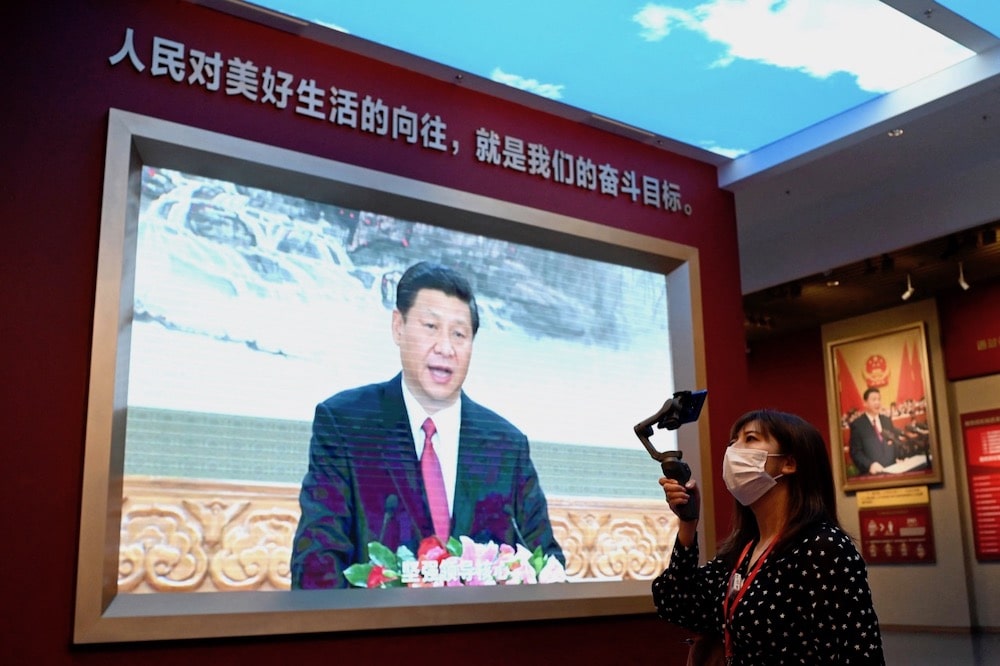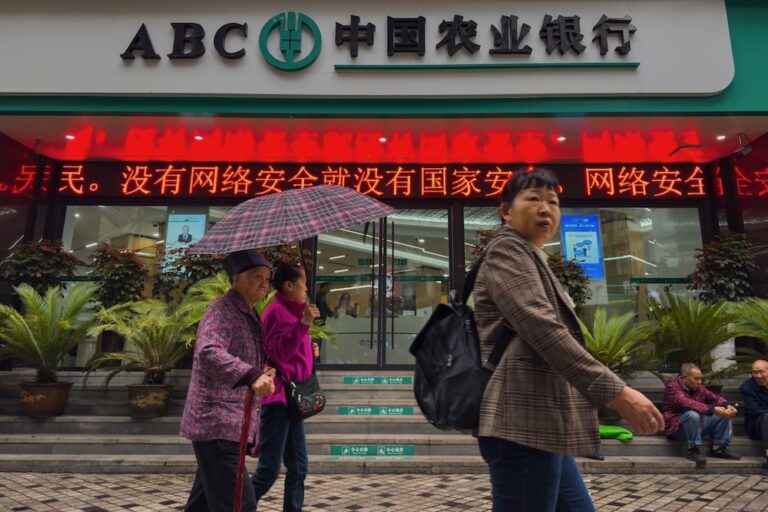The Chinese government's latest crackdown on online rumors echoes Xi Jinping's earlier effort to establish a "security barrier" around the Chinese internet.
This statement was originally published on freedomhouse.org This statement was originally published on freedomhouse.org as part of the China Media Bulletin – September 2023.
- CAC crackdowns target misinformation, cyberbullying: On July 16, China’s Cyberspace Administration (CAC) announced a new crackdown on misinformation. A week earlier, on July 7, new regulations were published requiring online platforms to monitor and suspend accounts spreading false or harmful content, and tighten control over influencers and content creators as a means of preventing online violence and hate speech. More than 8,000 social media accounts (including ones not promoting violence or hate speech) have reportedly been shut down, along with other actions taken since the first quarter of 2023. In response, companies, organizations, and individuals are reportedly using content-moderation services, particularly CCP mouthpiece the People’s Daily‘s new AI censorship tool “Renmin Shejiao,” to prescreen online material due to political content filtering. The Chinese government’s latest crackdown on online rumors and cyberbullying echo Xi Jinping’s earlier effort to establish a “security barrier” around the Chinese internet, as highlighted in his July 15 speech at the National Network Security and Informatization Work Conference.
- Crackdown on LGBT+ accounts and content: On August 22, WeChat suspended several LGBT+ accounts without explanation, including Flying Cat Brotherhood, Transtory, and Beijing Lala Salon. On August 23, security guards reportedly prevented fans from wearing rainbow outfits at a concert by Taiwanese pop star A-Mei, an advocate for the LGBT+ community. In early August, a Weibo influencer with 337,000 followers reported that Pride-themed Starbucks merchandise in a Qinhuangdao store was removed and confiscated in cities in Hebei Province, after activists drew attention to the items on social media. Freedom House’s China Dissent Monitor reported in August that several Pride-related events faced repression in June 2023, including an online photography contest and a Pride Run. These incidents reflect a growing crackdown on LGBT+ groups since 2021.
- New rules for mobile apps, Apple Chatbot removals, Baidu’s ERNIE chatbot censors: On August 8, the Ministry of Industry and Information Technology (MIIT) released new rules requiring mobile-app publishers to file business details with the government by March 2024. Publishers in certain service categories, such as news, publishing, education, film and television, and religion, must also submit an approval and commitment letter to provincial authorities. Tencent, Huawei Technologies, Xiaomi, OPPO, and Vivo app stores have begun adhering to China’s new app oversight rules, according to a September 4 Reuters report. Meanwhile, on August 15, Apple removed over 100 ChatGPT-like apps from China’s app store on August 1. Apps such as Spark and ChatGAi Plus, an AI-based chatbot and translation service, were reportedly among those removed. On August 31, Baidu released its ERNIE Bot, which operates similarly to ChatGPT, to the public. The system is reportedly designed to restrict discussion of sensitive topics such as the 1989 Tiananmen Square crackdown and promote CCP talking points on issues like the status of Taiwan and Hong Kong. In cases where the system is asked about a censored topic, it will end the conversation, suggest changing the topic, or reply that it has not yet been trained to answer.
- Censored items include cremation stats, accident reports, TEDx event, economics paper, history book, Qin Gang material: In July, a report on Zhejiang’s cremation statistics, published briefly on July 13, suggested a higher COVID-19 death toll than the official count. It was quickly removed from the provincial government website where it was posted, and related social media posts were censored. Following the collapse of a gymnasium roof in Heilongjiang province on July 23, social media posts about government officials who were intimidating grieving parents, as well as posts honoring the victims, were also quickly censored. In August, a TEDx event planned for August 13 in Guangzhou that included talks by artists, researchers, campus antibullying advocates, and entrepreneurs, was canceled by the police due to concerns about its links to a foreign organization. On August 14, China banned the rock band Slap (Erguang Yuedui) and related content across Chinese websites and apps in connection with their socially conscious lyrics, including a recent song on the pandemic and the “chained woman” scandal, sparking online discussion. Weibo censored a paper written by Hong Kong businessman and writer Lew Mon-hung, published in a Singapore newspaper and titled “The Economy Is The Problem, Its Root Is Politics,” which gained popularity online for blaming Xi Jinping and the ruling party for China’s current economic problems. A Chinese association aligned with the state has banned a book about the early history of the Mongols, citing “historical nihilism” and its failure to conform to the narratives and policies promoted by the communist regime. Separately, after he was abruptly removed from his position on July 25, the Chinese Ministry of Foreign Affairs removed hundreds of press releases about Qin Gang from its website and removed comments sections on the site. Weibo has reportedly filtered out searches for “Qin Gang” and censored a related hashtag.



